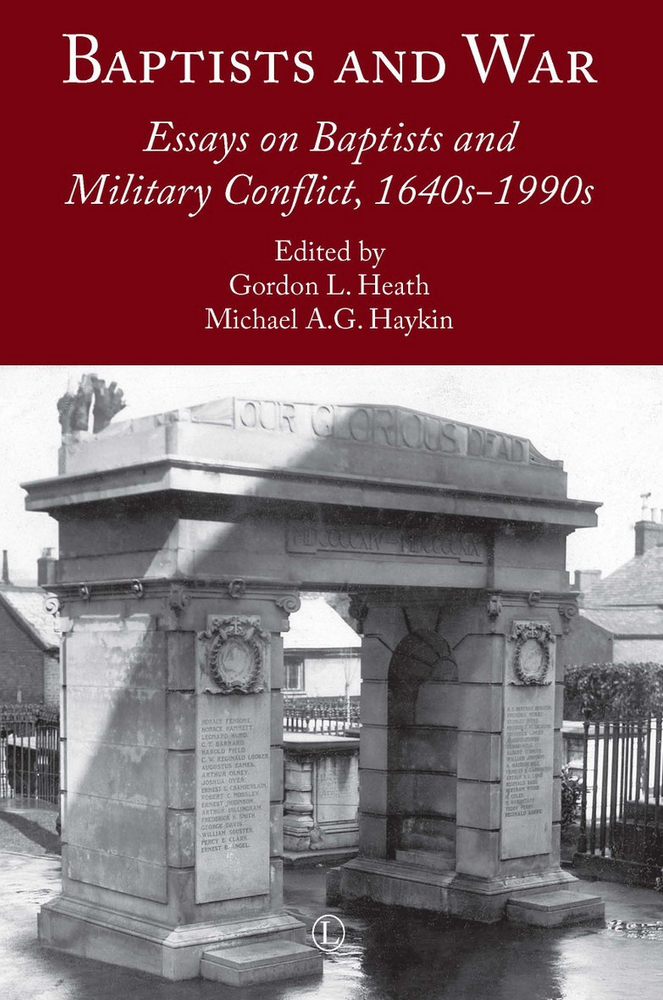How did Baptists respond to war?
A series of essays pinpointing Baptist attitudes to conflict at different times in different countries
 Baptists and War: Essays on Baptists and Military Conflict, 1640s-1990s
Baptists and War: Essays on Baptists and Military Conflict, 1640s-1990s
Edited by Gordon Heath and Michael Haykin
Lutterworth Press
ISBN: 978 0 7188 9408 5
Reviewed by the Revd Dr Martin M’Caw
This is not a theological treatise, but essays pinpointing Baptist attitudes to conflict at different times in different countries.
‘The Seventeenth Century British Foundations’ is the most theological, setting out early European and British Baptist attitudes whether there can be a ‘just war’. It traces the divergence of view between John Smyth and Thomas Helwys and the concept of ‘the just war’ as a legitimate concept. This was in contrast to the Anabaptist position, and recognised that the great majority of British Baptists were Parliamentarians rather than Royalists.
The remaining chapters examine specific issues within their historical context. Paul Brewster’s essay ‘Andrew Fuller and the war against Napoleon’ considers growing nationalism in the face of the French Revolution and Napoleonic threats.
Fuller expressed biblical examples of the role of the magistrate, the pursuit of a just war for a righteous cause, within the Baptist principle of the freedom to make up one’s own mind in the light of scripture and conscience.
Whilst Fuller recognised war and politics stood in close relation, the Christian’s allegiance to a biblical conscience was the antidote to political manipulation. The essay on American Baptists and the War of 1812 reflects the growth of American patriotism.
In contrast those on Canadian Baptists and British expeditions to the Nile in the 1880s, and the experiences of the Canadian Baptist Thomas Shields in the First World War reflect fervent support for British imperialism. From being a conciliator Shields drew spiritual parallels between physical and spiritual warfare in which he pictures Germany as ‘the incarnation of evil’.
I found Maurice Dowling’s essay on ‘Soviet Baptists and the Cold War’ the most interesting: reflecting Russia from the inside, rather than from what one might call the speculation of less favourably disposed outsiders.
His fulcrum of consideration is The Law on Religious Associations of April 1929. In order to fight a desperate war Stalin’s need to reunite people and thus reconcile himself with Christians would never make him a saint. It was a needs-must action for a particular purpose and never gave Christians an easy ride.
However as someone brought up on the experiences of Georgi Vins and Brother Andrew it is fascinating to discover the statement in Bratskii Nyestnik (Fraternal Messenger) in 1947 that ‘beyond the borders of the USSR there are people who relate all kinds of fables about religious life in the USSR. Such people are either malicious slanderers or they don’t know what they are talking about.’
The final chapter ‘Baptists and the war in Vietnam’ explores divisions between the theological and political conservatism of Southern Baptists and other American Baptists such as the American Baptist Convention and the Progressive National Baptist Convention which reflected ‘broader trends among the new left’. The bottom line was all wanted peace. The debate was how to obtain it. In that Baptists were very like Americans in general.
Baptists and War expresses no Baptist absolute between biblical interpretation, political policies and military pursuits. Perhaps there should be a counter selection of essays on Baptists, pacifism and conscientious objection.
The Revd Dr Martin M’Caw (Retired Baptist minister/Wing Chaplain No.2 Welsh Wing Air Training Corps)
Baptist Times, 03/06/2016